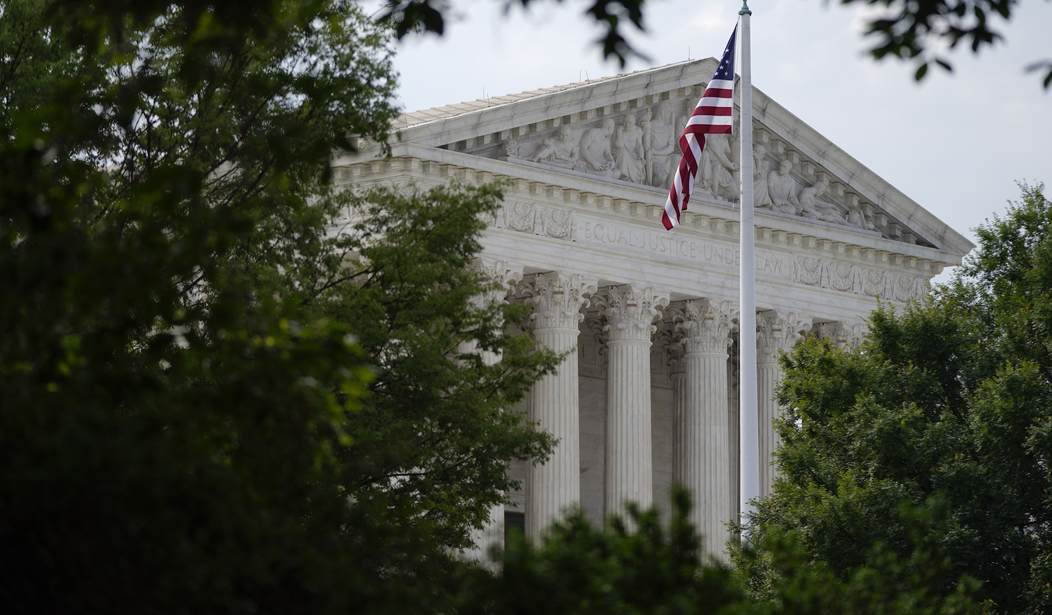America is struggling.
While this country and its people have faced their share of difficulties -- including the Great Depression, several wars, terrorist attacks, and countless devastating natural disasters -- we seem to be losing a key attribute of our national identity: our confidence in our ability to solve problems and achieve what was once considered "impossible."
That confidence was born of at least three widespread attributes -- initiative, gratitude, and humility -- which are sorely lacking at present.
The initiative is what's behind every single aspect of America's political and economic success throughout the nearly two-and-a-half centuries of our existence. The initiative is tied to individual effort. It is born of optimism and the fundamental belief that one is capable of doing something. It is a recognition of agency, self-efficacy, and an internal locus of control.
By contrast, the focus of our national conversations now is not on individual capabilities but on faceless aggregations: "systemic racism," "white supremacy," the "patriarchy," "toxic masculinity," and "climate change" -- large, amorphous concepts with ever-shifting definitions that somehow obstruct individual success and threaten society at large, yet over which the individual has little control. These massive societal problems, we're told, require remedies so equally massive -- dismantling "systems" of racism or radically altering the climate -- that they can only be addressed by the government (quite possibly, a global government).
In the face of this relentless drumbeat of negativity, it should surprise no one that so many of our young people -- who should feel grateful and optimistic -- are depressed, crippled by anxiety and self-loathing, angry and hopeless. It's hard to feel gratitude when you're bombarded with messaging that everything around you is terrible.
Recommended
Contrary to the popular narrative, victimhood does not empower; it only dispirits. Lack of gratitude soon translates to a lack of initiative -- after all, why bother? Is it any wonder, then, that these same dispirited young people want a bigger government with more control to "fix" the problems they've been told they cannot?
The third missing attribute is humility. This may seem incongruous, emphasizing as I have the role of the individual in a flourishing society. But it is essential if one is to avoid humility's opposite, hubris.
If initiative is the mother of competence, hubris produces catastrophe -- and just as frequently in the private sector as in government.
It was hubris that prompted OceanGate CEO Stockton Rush to take people thousands of feet into the ocean in an experimental craft he had decided not to certify using nationally recognized safety standards, which he viewed as an unnecessary impediment to his genius. Five people, including Rush, were killed when the OceanGate submersible imploded on June 18.
It was hubris that prompted FTX founder Sam Bankman-Fried to take tens of billions of dollars from other people via a cryptocurrency exchange neither he nor anyone else on his team was qualified to create or maintain. FTX had an estimated value of $32 billion before the company spectacularly collapsed and went into bankruptcy. Bankman-Fried is facing trial for criminal fraud.
It was hubris that prompted Theranos founder Elizabeth Holmes to think that, with no science or medical background whatsoever, she could develop a machine that tested for multiple diseases using only a single drop of blood -- something the most sophisticated machines ever developed cannot do. Holmes' machines never worked, and she bilked investors out of more than $700 million. She was convicted of fraud and is serving a 9-year prison sentence.
It was hubris for Anthony Fauci, the National Institute of Allergy and Infectious Diseases, Peter Daszak, and EcoHealth Alliance to fund "gain-of-function" research to see if bat viruses could be genetically modified to "jump" into humans, especially in a foreign laboratory that had inadequate safety protocols.
It is hubris for people in government and media to pretend that only they have the truth and to censor the public's access to competing information.
And it is hubris for anyone in government to assume that they can completely shut down sources of energy, shrink or radically alter agricultural production, or shutter entire industries in the name of "saving the climate" without disastrous consequences.
The United States economy and federal and state governments have worked as well as they have for 247 years not because of the brilliance of a few because no one has ever made a serious error, or because Americans are uniquely capable. (The fact that people of every race, creed, color, ethnicity, and economic background have come here and succeeded beyond their wildest dreams proves that anyone can do it.)
America has succeeded because no one individual or group or individuals is in charge. When people get arrogant or make mistakes, whether, in government or business, we bounce back because we have other sources to choose from.
In other words, the hubris of a few doesn't destroy everything because they don't control everything.
But the present obsession with "systemic" everything threatens American resilience. It is a deliberate push away from the power that is diffused among millions and a corresponding call for the concentration of power in the hands of a few -- the same elites whose hubris has destroyed companies and produced disastrous public policies.
This thinking cannot come to dominate the American psyche. We must refocus our attention on what has made it possible for Americans to achieve greatness and overcome adversity: to be grateful for our forebears and those who have contributed to our freedom and prosperity, notwithstanding their failings; to concentrate on what each of us can do to succeed in our own lives and to solve the problems before us; and to partner that initiative with humility that acknowledges both our own limitations and the reality that the most meaningful contributions often come from sources and people we least expect.
To learn more about Laura Hollis and read features by other Creators Syndicate writers and cartoonists, visit the Creators Syndicate website at www.creators.com.
























Join the conversation as a VIP Member